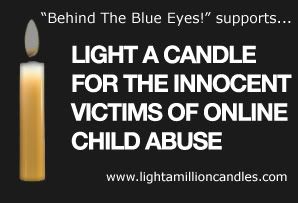Dan's playing as Harry Potter gives great impact to Fantasy Novels

As quoted: "As the Fantasy Market Explodes, Swords and Dragons Are for More Than Just Unconfident Males..."
Less than a decade ago, the words “fantasy novel” quite possibly evoked a mental image of an awkward, adolescent boy leaving greasy fingerprints all over the pages of a book about dungeons and dragons. In recent years, however, the genre has broken free of its confining stereotype, having earned this right, and then some.
Enjoying jumps in sales by 8.5 percent in the past five years, today the genre is treated much more seriously due to its rapid and dramatic rise in popularity. Having a conversation about fantasy novels could veer in the direction of myriad topics, from the ethics of escapism to blockbuster movies, from Freud’s thoughts on wish fulfillment to Daniel Radcliffe and pop culture.
Though fantasy novels have never exactly been unpopular, it was probably hard for their authors to imagine a time when their genre of novel would be so popular as to inspire winding moonlit lines of fans waiting to buy the newest book. That said, fantasy novels have enjoyed a long history and have existed longer than the genre thought to go hand-in-hand with them, science fiction. The earliest fantasy novel worth mentioning, in the sense that we understand it today, is Alice’s Adventures in Wonderland, written an astonishing 141 years ago by Lewis Carroll. Around 30 years later was Bram Stoker’s Dracula, and, at the turn of the century, Frank Baum’s Wizard of Oz.
In the 20th century, fantasy novels developed a bit of a cult following and a more specialized audience. Writer Ian McFayden’s satirical yet accurate Web site titled “How to Write a Best Selling Fantasy Novel” advises a potential writer to consider the audience and makes clear the stereotype surrounding fantasy novels: “Remember that the majority of people reading your book will be unconfident males. So make your character a Loser. Aimless, shy, cowardly, guilty, ill, lazy, rural—any of these will do.”
Though this category of reader may still make up the bulk of fantasy novel aficionados, the 21st century has already seen an audience expansion, largely due to the Harry Potter phenomenon, which began in 1998 with the publication of Harry Potter and the Sorcerer’s Stone. Middle school teacher Ann Smith observed, “Prior to the Harry Potter books, it seemed to me that boys tended to like fantasy better, but now girls show as much or more interest in reading fantasy books.”
Books and series like The Chronicles of Narnia, The Lord of the Rings, A Wrinkle in Time, The Last Unicorn, A Wizard of Earthsea, Redwall, and Eragon—which was, astonishingly, written by a 15-year-old homeschooled boy from the Midwest—have experienced immense popularity of late, probably helped by the recent Hollywood blockbusters based on them. Especially for younger kids, these movies have a positive effect: “I think that young people have wonderful imaginations that are sparked by the special effects of today’s amazing technology. Therefore, they can easily visualize the characters and plots of fantasy novels,” says Smith.
Though each novel, of course, has its own characters, message, and style, many plot elements overlap in fantasy works. McFayden’s Web site lists the main elements to include: “Create a Character, Create a Quest, Create a Motley Bunch of Companions, Create a Wise but Useless Guide, Create the Land, Create an Enemy, Make it Long, Lead up to a Cataclysmic Battle.” Though these guidelines are oversimplified, any fantasy novel you know and will likely include most of those elements.
Merriam-Webster calls fantasy “the creative imagination, unrestricted by reality.” Fantasy novels allow us to do just that: drop the restrictions and connections with reality and escape to not only another set of people and friends, but a whole other world where our worries and routine don’t exist.
On this subject, an anonymous fantasy novel enthusiast and writer on a fantasy message board writes, “When I was a kid, I wasn’t popular. It was occasionally hellish. I escaped into worlds where I could do anything I wanted. If I wanted to call a dragon and fly away on it, I could do that. If I wanted to be an elvish princess in disguise, I could do that. Now, it can be hard to admit that when you grow up, that you need to escape reality now and then, but I think the world is a scary and out-of-control place and sometimes that gets to people.”
As long as the world remains a scary and out-of-control place—and it currently shows no sign of ceasing to be so—fantasy will continue to reign in the hearts and minds of its faithful followers.
source: http://www.columbiaspectator.com/vnews








































0 Comments:
Post a Comment
<< Home